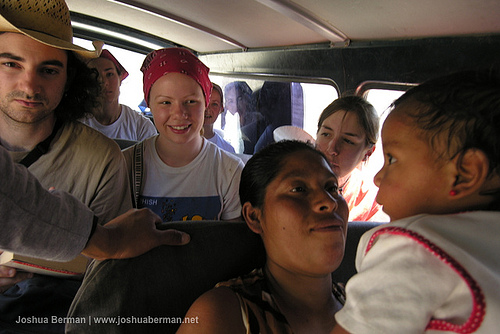Every month, the WHL Group delves into the travel experiences of travel experts in its extended network through interviews that appear on The Travel Word.
One of the requests made of each of these local partners is for them to briefly explain what they think local travel is. What follows is a revealing selection of those local partners who are also Local Travel Movement partners.
From Lee Sheridan of Teamworkz, the whl.travel local connection for 15 destinations in Laos, Thailand and Cambodia:
Local travel means more than just being based in the destination that we serve. Local travel means providing a kind of travel in which our guests can experience a place beyond the surface level. Living in tourism destinations, we often notice that tourists all do the same things at the same time in the same way as all the other tourists, and we wonder why.
Local travel to us is about understanding the locality of a place and what makes it special. It’s about participation and positive interaction. Local travel is a belief that nobody knows a place like the people who live there. Local travellers make the effort to seek out what locals recommend, what locals would do, and spend time enjoying and understanding the destination as a resident might, rather than staying in the isolation of the ‘tourism zone’. Teamworkz’ experienced staff are here to help you make this step – a step inside our destinations to understand why we love these places as much as we do.
—–
From Silvana Nicholls of Vanuatu Hotels, the whl.travel local connection in Vanuatu:
I think finding the ultimate solution to changing the prevailing ‘Me!’-travel culture to one of local travel is important. Local travel needs to be felt in order to be manifested. It is akin to comparing real love to self-love. Local travellers will make that extra effort to empathise, understand and share in another person’s life, as opposed to those who use a destination as a new host to satisfy their whims and indulgences.
Frankly, I don’t understand some travellers. Without an emotional interest in a country, what is the point of visiting it? If one cannot feel for the people and country one is visiting, then one will not comprehend the local-travel concept. Caring about others – their welfare and the environment – and balancing your own self-gratification with support for local people when travelling should come naturally. How you behave and what you do will follow, as is mentioned by all my WHL Group counterparts.
Read more by Sylvana’s husband, John, about local travel in Vanuatu on the Local Travel Movement
—–
From Laura Payne of Outdoor Albania, the whl.travel local connection in Albania:
As I’ve written elsewhere, it involves as many local actors as possible in the travel experience of the tourist.
—–
From Chrysa Paparnakis of Odyssey Tours, the whl.travel local connection in Thessaloniki, Greece:
The core of our local travel philosophy is the desire to get the traveller close to the culture of the place they are visiting by truly interacting with the local community. These ‘real’ travellers visit places off the beaten track, use local transport and mix with locals. They eat in places that locals do, taste traditional recipes and even learn about the problems of the community they are visiting and offer support through their travel in the area.
Read more about local travel in Thessaloniki on the Local Travel Movement
—–
From Thierry Joubert of Green Visions, the whl.travel local connection in Sarajevo, Bosnia and Herzegovina:
Travel that is slow and allows you to immerse yourself in the local culture through meaningful relationships with people you meet along the way.
—–
From Ny Sandayvy of angkorhotels.org, the whl.travel local connection in Siem Reap, Cambodia:
Local travel can educate visitors about community development in rural areas. For instance, they are able to view the real lives of handicapped soldiers, orphans and vulnerable people who face several problems in their lives. Visitors can make a contribution either financially or by volunteering their time to help.
—–
From Norma Gazga of Gray Line Los Cabos, the whl.travel local connection in Los Cabos, Mexico:
I strongly believe it is based on the interaction of the tourist with a whole place (the culture, the activities). It’s about the understanding of being part of a different location in the world while you’re travelling and the benefit of the increased knowledge you will have about the world at the end of the tour.
Read more about local travel in Los Cabos on the Local Travel Movement
—–
From Kate Ward and Chimwemwe Siyabu of The Responsible Safari Company, the whl.travel local connection in Malawi:
Kate: Local informed travel increases awareness of environmental issues, which in turn increases the demand for the government and larger organisations to be more responsible. For example, battling the pollution of Lake Malawi.
Use of local employment is key to the wonders of travelling local in Malawi and is helping to boost the local economy. Visiting your driver’s/guide’s family after your safari. Chatting with your Mulanje porter after a day hiking. Visiting the United Nations Millennium Villages and learning from the community about ways in which life has changed.
Chimwemwe: This is where people from abroad visit specific local areas in order to see and understand local things found in that area.
Read more by Kate about local travel in Malawi on the Local Travel Movement


Discussion
No comments yet.